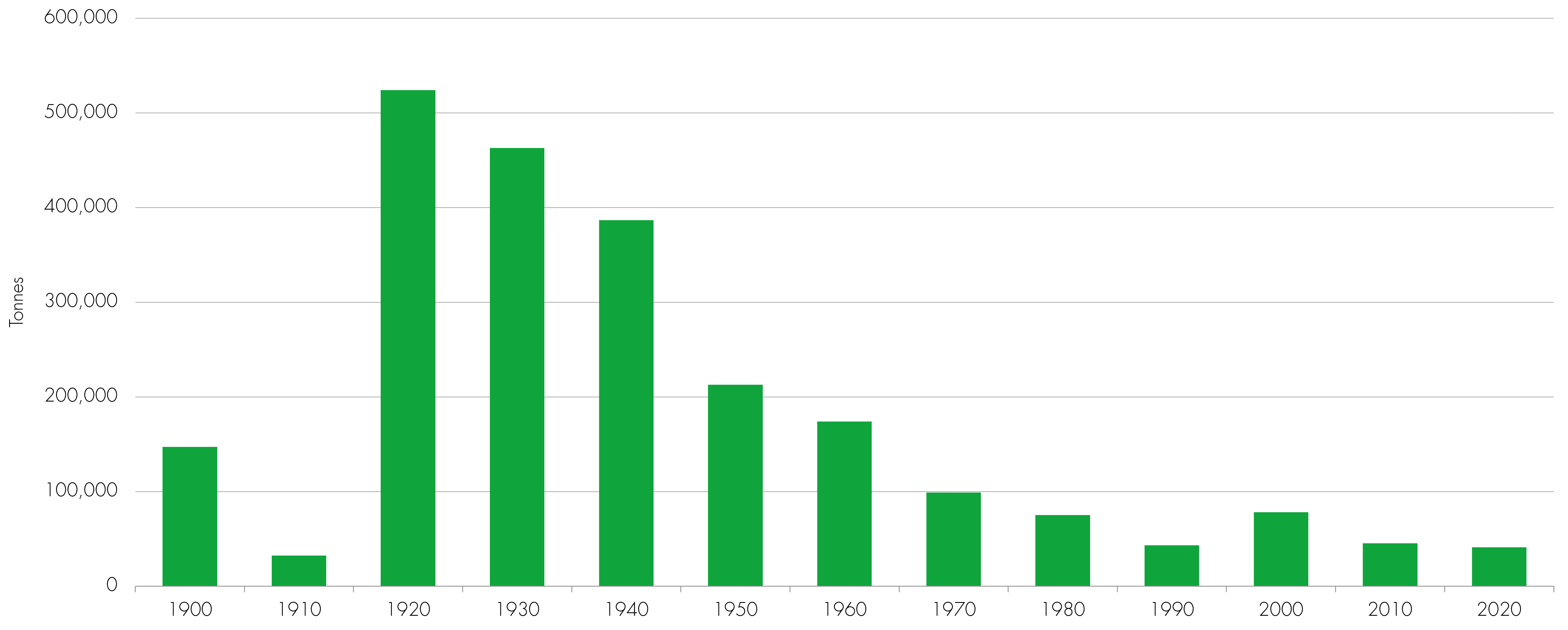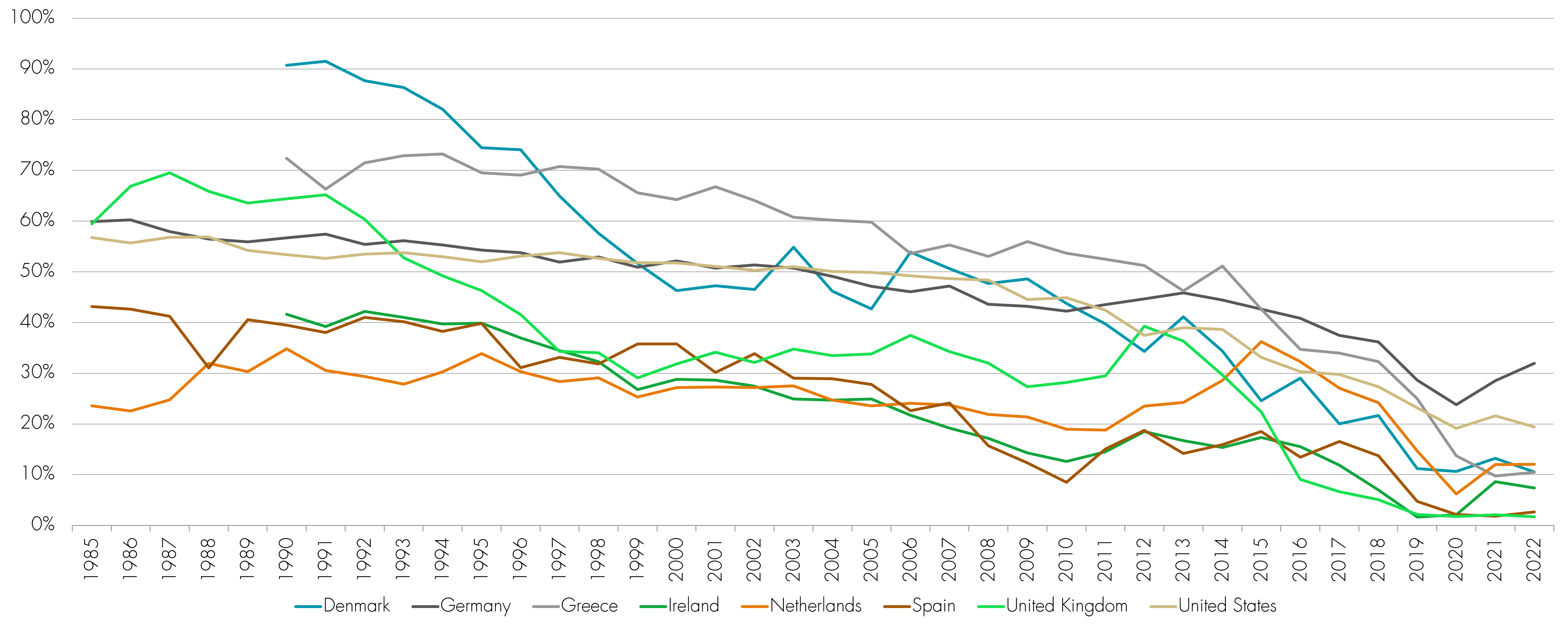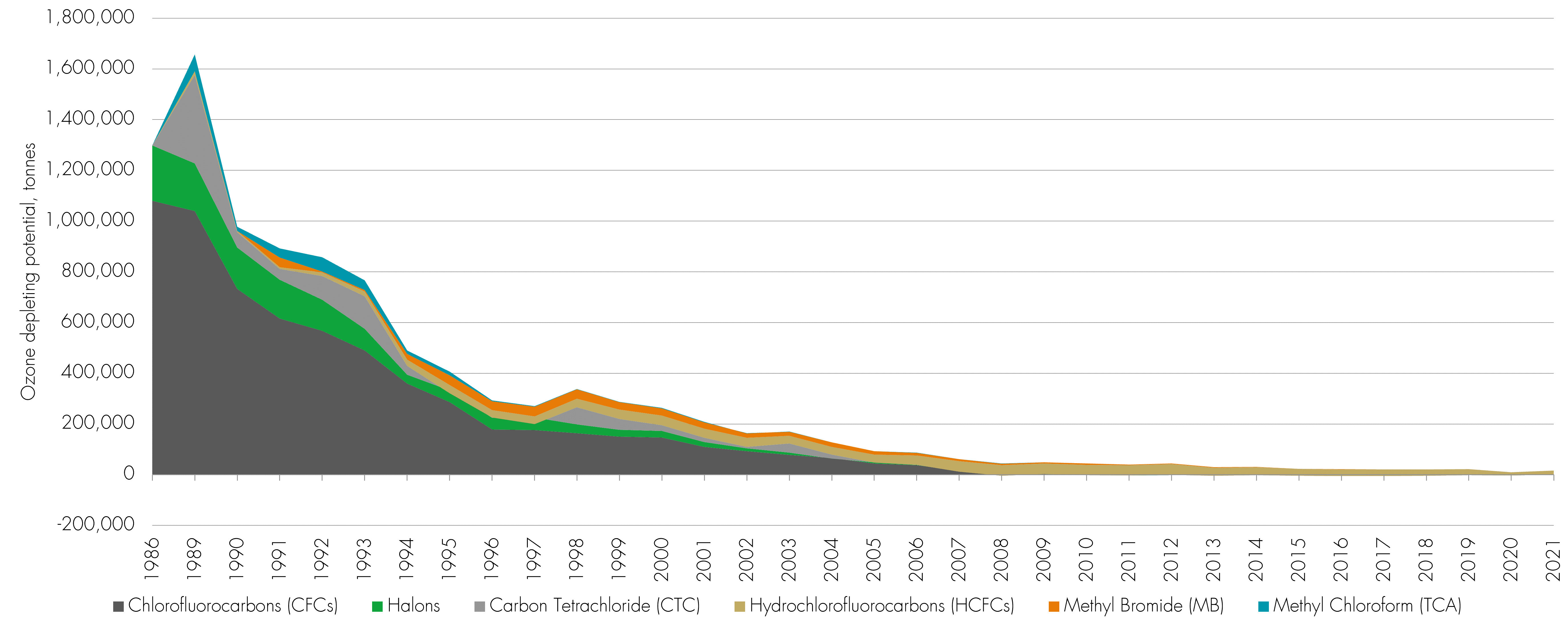Despite the events of the past few years, there are reasons to be optimistic about a sustainable future. Improvements in air pollution, the decline in coal, vaccine production and repair of the ozone are just a few. Peter Michaelis, Head of the Sustainable Investment team at Liontrust, discusses two of the themes driving these developments and how listed companies are benefiting.
The news in 2023 was dominated by reports of wars, lack of progress at COP28 climate talks, biodiversity loss, democracy under threat – all topics that could lead one to have a dismal view of future prospects.
However, in the Liontrust Sustainable Futures team, we look behind the headlines to counter this bleak view of the future. While it is not all rosy by any means, there are some areas where, perhaps surprisingly, things have been getting significantly better.
1. Reduced air pollution
Remember the 2008 Olympics in Beijing? Athletes complained of choking air pollution. We wrote about it under the headline ‘Airpocalypse Now’. Sulphur dioxide and particulate pollution reached multiples of the safe limits set by the World Health Organisation.
14 years later and there has been a 55 per cent reduction in air pollution between 2013, when it was at its worst, and 2020. This has improved life expectancy in the city by an estimated 4.6 years[1]. This progress has also been seen globally, with death rates from air pollution estimated to have halved since 1990.
2. Deaths from natural disasters halved
Earthquakes, tsunamis, storms and floods make for dramatic news. But again perhaps surprisingly, the number of global deaths from natural disasters has halved in absolute terms over the last hundred years. This is in spite of the global population quadrupling in that time. We have become much more resilient to these natural events.
Decadal average: Annual number of deaths from disasters

Source: EM-DAT, CRED, 2023. Decadal figures are measured as the annual average over the subsequent ten-year period. This means figures for ‘1900’ represent the average from 1900 to 1909; ‘1910’ is the average from 1910 to 1919 etc. Data includes disasters recorded up to September 2023.
3. Coal is a dying fuel
Coal is plentiful, but dirty, dangerous[2] and becoming expensive relative to alternatives. In the UK it has fallen from 66 per cent of the electricity generating mix to just two per cent over the last thirty years. In the US, usage has dropped from 55 per cent to 20 per cent. It is being replaced by cheaper, easier to deploy, clean wind and solar.
To quote the president of the International Energy Agency, “humanity has never had a cheaper energy source than solar PV”. Solar is now consistently cheaper than new coal- or gas-fired plants in most countries, and solar projects now offer some of the lowest cost electricity ever seen. The era of burning things for energy is coming to an end.
Share of electricity production from coal (measured as a percentage of total electricity

Source: Ember Climate Yearly Electricity Data (2023); Ember – European Electricity Review (2022); Energy Institute – Statistical Review of World Energy (2023)
4. There’s a malaria vaccine
Malaria finally gets its vaccine – in fact two. GSK and the Jenner Institute have launched vaccines that will help to control a disease that in 2020 infected 249 million people and killed 608,000 (80% of these deaths were in children under the age of five). Boosting immunity in children will dramatically reduce the impact of this dreadful disease.
5. The ozone is repairing
The hole in the ozone layer is under repair. According to the UN environment programme, the ozone layer is now on track to fully recover within the next four decades – which means the hole will close and the layer will return to 1980 values, i.e before the appearance of the ozone hole.
While this is dependent on the world continuing to comply with the Montreal Protocol of 1989, which outlawed the use of ozone-depleting substances including chlorofluorocarbons (CFCs), it is still hugely positive.
Emissions of ozone-depleting substances, World

Source: UN Environment Programme (UNEP) 203 and NASA Ozone Watch. Annual consumption of ozone-depleting substances. Emissions of each gas are given in ODP tonnes. In some years, gases can have negative consumption values. This occurs when countries destroy or export gases that were produced in previous years (i.e. stockpiles).
Two themes driving these developments and how listed companies are benefiting:
1. Innovation in healthcare
Our team identified a major shift in the way that medical treatments are formulated: moving away from small simple molecules (used in a pill) towards larger more complex molecules, which are called biologics.
This shift is expected to deliver much more effective ways of treating disease (many of which can’t be treated by using a simple pill.
We believe companies involved in selling life science equipment and consumables, as well as companies that have specialised in the manufacture of these more complicated biologics treatments are set to benefit from the increased demand for their specialised services.
We are invested in companies expected to benefit from this broad trend through our Innovation in healthcare sustainable investment theme. These companies include:
- Lonza,a company specialised in making biologics molecules – many pharmaceutical companies get Lonza to make these treatments for them.
- Sartorius is a global company headquartered in Germany that specialises in making the containers used to create and transport these biologics.
- Thermo Fischer is a US-based company that sells a broad range of specialist consumables and equipment used in life sciences. It is one of our biggest holdings and has been for many years.
2. Digital security
Digital security is a theme that keeps gathering momentum, as anyone wanting to access the British Library services will know. Unless you have secure systems, your organisation risks being shut down and having data and money stolen. Ransomware attacks are estimated to have risen 37% in frequency over the last year and 28% in cost per attack.
As more of our lives move online it becomes ever more critical that information and networks are secure. Home working, cloud computing and AI have only accelerated the pace of this race.
For this reason, we believe those companies helping to protect us in the digital world will see strong growth. Among these we would highlight Palo Alto Networks, which is the leading platform for firewalls and endpoint security; Softcat, which sells security to UK SMEs; and Verisign, which oversees the security of internet domain names.
Risk warning: Capital at risk. This should not be construed as investment advice. Past performance does not predict future returns. You may get back less than you originally invested. Reference to specific securities is not intended as a recommendation to purchase or sell any investment
Find out more about the Liontrust Sustainable Investment team here.




